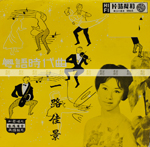In the time when Wong Jum-sum grew up, Cantonese pop music was but one of many kinds of music broadcast on radio. In a society where over 80% of the population spoke Cantonese, that came as a major surprise. Wong has a simple explanation for this. Cantonese pop grew out of traditional Cantonese music, but it could not build on the popularity of the latter in the face of severe competition. Compared to Western or Mandarin pop, it lagged behind in the areas of composition, lyrics, singing, accompaniment, recording, distribution, and marketing. Its competitors had a head start in talents, organization, and technology that took Cantonese pop more than a decade to come close.
Not everyone agrees with Wong’s diagnosis. Other scholars argue Canto pop, even in such early days, had a unique vibrancy that came from a healthy disregard of the boundaries among different traditions and genres, be they local or foreign. Early Canto pop laid a solid foundation for modern Canto pop, which went on to dominate not only Hong Kong but most Chinese communities around the world.
The story of Cantonese pop awaits careful re-writing.


作曲:Marshall Brown
作詞:周聰
主唱:周聰、呂紅
呂:落花飛滿窗 觸我愁眉
周:天邊月半掩 使我掛念你
呂:自己心太癡 一秒也難別離
天天心裡飲泣 一切也為着你
周:足足哭了成晚 呼呼呼呼
相見經已盡歡 常伴着你
呂:一天分開也難過 我太寂寞
周:今相見我絕不 離別你
呂:落花飛滿窗 觸我愁眉
周:天邊月半掩 使我掛念你
合:大家都唱歌 歡笑尋樂時
一刻不要分開 永遠伴着你
呂:落花飛滿窗 觸我愁眉
周:天邊月半掩 使我掛念你
呂:自己心太癡 一秒也難別離
天天心裡飲泣 一切也為着你
周:足足哭了成晚 呼呼呼呼
相見經已盡歡 常伴着你
呂:一天分開也難過 我太寂寞
周:今相見我絕不 離別你
呂:落花飛滿窗 觸我愁眉
周:天邊月半掩 使我掛念你
合:大家都唱歌 歡笑尋樂時
一刻不要分開 永遠伴着你
永遠伴着你 永遠伴着你
























